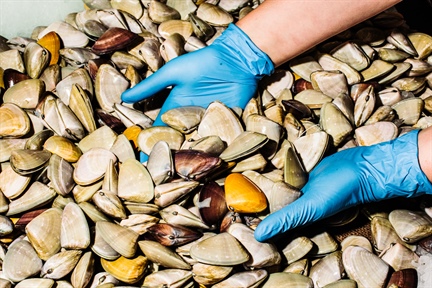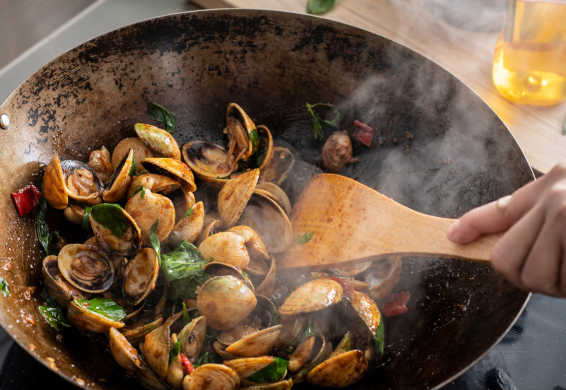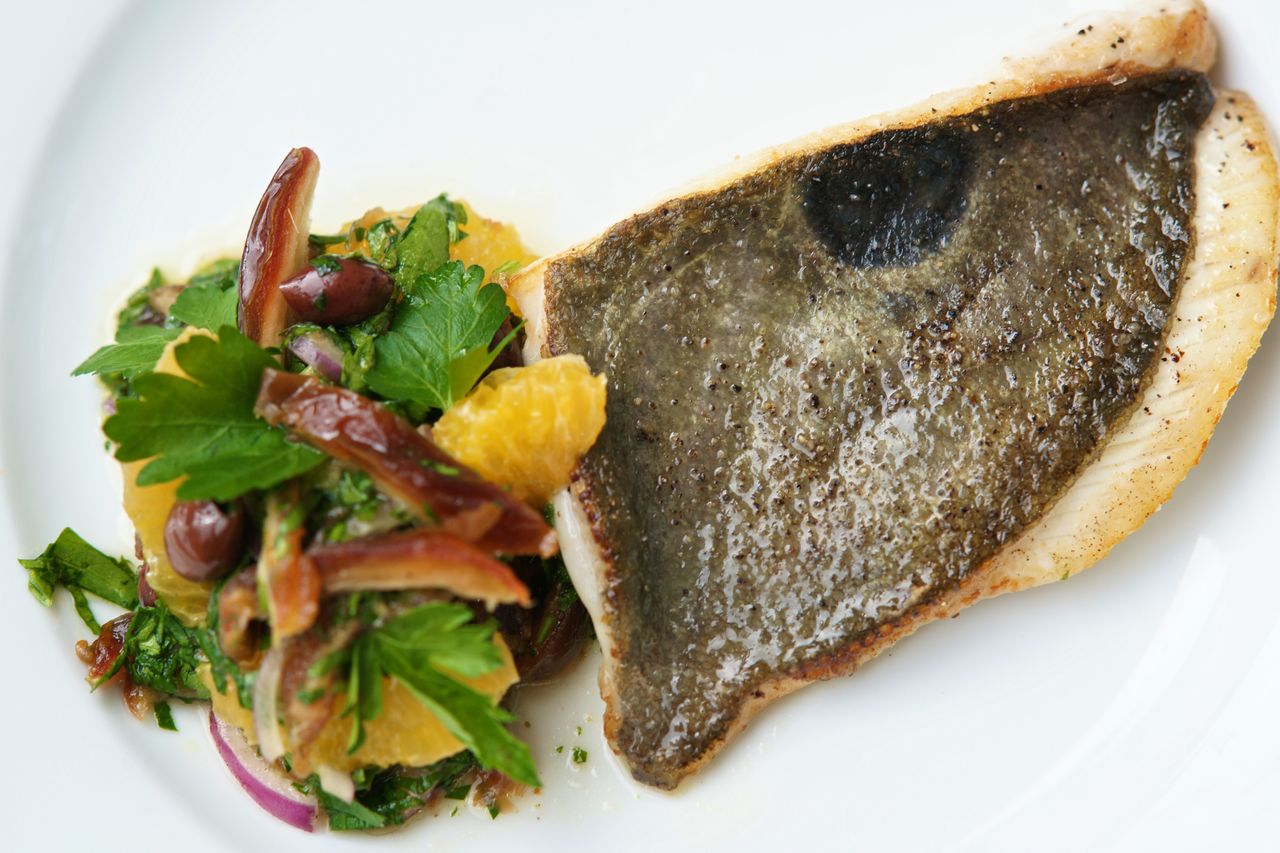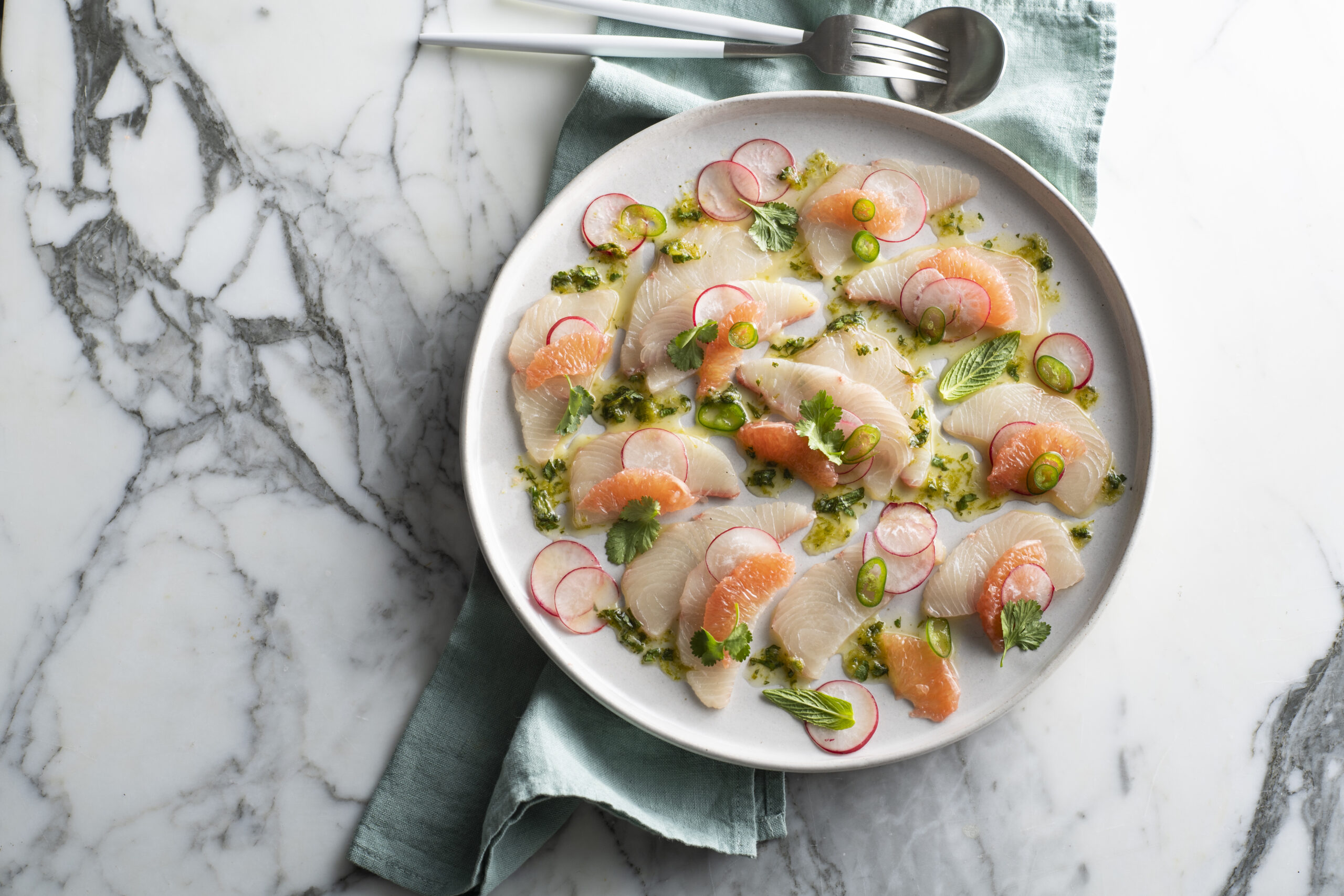
Description
A marine bivalve mollusc with a smooth wedge-shaped, cream to pale brown shell (sometimes slightly yellow or green and with pinky-purple bands) containing dark (often bluey-purple) meat. They are found all around the Australian coast and are hand-harvested from the intertidal zone of sandy beaches with good surf (from about 10cm below the surface), mainly south from the NSW/Queensland border to the beginning of the Great Australian Bight in SA.
Price
Low priced.
Relations
Surf Clams and Vongole, which can be differentiated by their ribbed or ridged shells.
To Buy
Sold live. Look for brightly coloured, intact, lustrous shells, that are closed or close when tapped or gently squeezed, and a pleasant fresh sea smell.
Due to their sandy habitat they can contain quite a bit of grit, ask your fishmonger if they have been purged (stored in aerated saltwater for at least 24 hours to eliminate sand), if they haven’t been, see below for purging instructions.
To Store
Pipis should be consumed as soon as possible after purchase. Place in a container, cover with a damp cloth and keep in a cool part of the house (not the refrigerator) for a few hours, or store overnight in salted water (see purging directions below). Before cooking, discard any shells that are open and don’t close when tapped or gently squeezed. Freeze meat for up to 3 months below -18ºC.
To Cook
If Pipis haven’t been purged, place them in a solution of cool water and sea salt (30g salt to each litre of water) for several hours, or overnight, in a cool part of the house (if you refrigerate them they’ll close up and won’t ‘spit out’ the sand).
Average yield is 20-30%. They have a strong, rich flavour, medium oiliness and moist, firm flesh. Remove from the heat as soon as they open, as they quickly shrivel and become chewy if over cooked.
While traditional wisdom was to discard shells that don’t open when cooked, you can pry them open, away from the plate, and, if they smell good, eat them; if they’re bad, they’ll have a distinctly ‘off’ aroma.
Cooking Methods
Steam, poach, stir-fry, bake, grill, barbecue, smoke, raw (sashimi), pickle. The firm flesh works well in soups, curries and stir-fries. The classic Pipi dish is stir-fried with black bean sauce.
Goes Well With
Strong flavours; Anchovies, chilli, Chinese black beans, coriander, garlic, ginger, soy sauce, tomato, Worcestershire sauce.
Imports
None.


